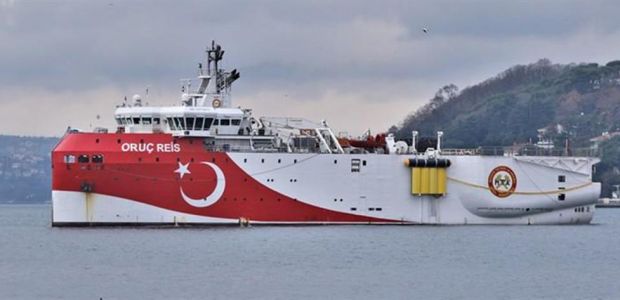Turkey will not continue intensifying its provocations in the East Mediterranean as the neighboring country has already achieved its main goal, a State Department declaration noting that the country is performing hydrocarbon exploration activities in disputed territory, Dr Konstantinos Nikolaou, a seasoned petroleum geologist and energy economist, supports.
Turkey’s provocations over the past few days – the country sent a seismic survey vessel into Greek EEZ waters for further exploration work following such initiatives in the past – represent part of a carefully planned strategy whose aim is to end Turkey’s East Mediterranean isolation of recent years and put the country back in the frame of the region’s hydrocarbon developments, experts believe.
Turkey has refused to sign the UN’s International Law of the Sea treaty, strongly disagreeing with Article 121, giving EEZ and continental shelf rights to island areas.
Instead, the country has followed its own rules, adjusting them as it pleases, to avoid giving any rights to island areas.
Besides seeking to reinforce the country’s position that rejects any EEZ rights for islands, the latest Turkish moves also aim to cancel EEZ agreements signed by Cyprus with Egypt, Israel and Lebanon.
Turkey has unsuccessfully sought to sign an EEZ agreement with Egypt, during Muslim Brotherhood times.
Dr. Nikolaou predicts that there will be no Turkish movement south of Crete as the transfer of an area by Libya, Turkey’s regional partner, would be required. The area of Benghazi is not controlled by Fayez al-Sarraj, the head of Libya’s UN-recognized government, but by renegade commander Khalifa Haftar.
Ultimately, the Turkish strategy in the wider region is aiming for co-exploitation of hydrocarbon deposits that may be discovered.





